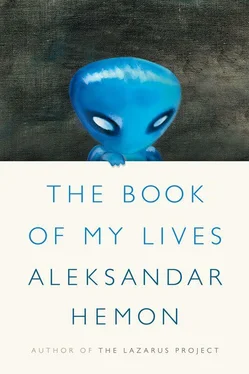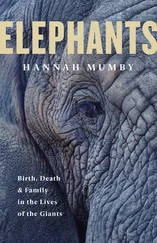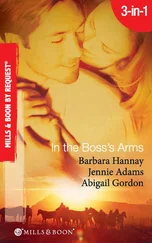By midsummer it became hard to maintain the precarious state of hysterical oblivion. A dealer we had used as a source for a story on drug traffic in Sarajevo went back home to Croatia for a visit and ended up forcibly conscripted, then called us, somehow, from the trenches, leaving a frenzied message: “You cannot imagine what is happening here!” We could hear shooting in the background. He didn’t leave a number where we could reach him on the front line, and I doubt we would have called him back if he had. Then Pedja was dispatched to report from the Croatian front, only to be arrested and tortured by the Croatian forces. After his release was negotiated, he returned all beaten up, appearing, aged, at our door. He couldn’t sleep at night and moped around our place for days, his eyes glassy, his brain irresponsive to Dean Martin, his bruises changing color from deep blue to shallow yellow. Finally, annoyed, I sat him down, pushed a tape recorder into his face, and made him tell me about his experience in the Croatian war zone: his stupidly boarding a bus full of Croatian volunteers; the beating that ensued; the detention and the so-called interrogation; the humiliatingly stupid good cop, bad cop routine (the good cop liked the Pet Shop Boys); the squeezed testicles and kidney punching; the taste of the gun in his mouth; et cetera. When he finished, I turned off the recorder, ritually handed over to him the ninety-minute tape, and said: “Now put it away and let’s move on.” I deemed myself wise back then.
But there was nowhere to go. In July, I quit the editing job and went for a few weeks to Ukraine, just in time for the August putsch, the collapse of the USSR, and the subsequent Ukrainian independence. When I came back to Sarajevo in early September, the magazine had been shut down; Pedja and Davor had moved us all out of the Kovači apartment and back to our respective parents’ homes, as we had no more money to pay the rent. The city was deflated, the euphoria exhausted. One night, I went to the Olympic Museum café, where we used to hang out a lot, and I watched glassy-eyed people stare into the terrible distance, barely talking to one another, some of them drugged to the brim, some of them naturally paralyzed, all of them terrified with what was now undeniable: it was all over. The war had arrived and now we were all waiting to see who would live, who would kill, and who would die.
My family used to have a cabin on the mountain called Jahorina, twenty miles from Sarajevo. Jahorina was a ski resort, and back in our teenagehood, Kristina and I spent our entire monthlong winter breaks skiing and partying, our parents coming up only on weekends to deliver food and clean clothes and assess the damage. While in the winter the mountain was full of skiers, tourists, and friends, it was mostly depopulated in the summer. On weekends, there would be a few other cabin owners who, like my parents, escaped from the city heat to tinker with woodwork. Kristina and I avoided going to the mountain in the summer, despite our parents’ insistence that Jahorina was heaven, as compared with the hell of Sarajevo. We much preferred idling and simmering in the parentless cauldron of the city.
But sometime in the late eighties, I started going up to the mountain in the summer. I’d pack my little Fićo (the Yugoslav replica of the Fiat 500) with books and music and move to Jahorina for a month at a time. I was in my mid-twenties, still living with my parents, which, apart from problems pertinent to my personal sovereignty and privacy, made reading with sustained attention fairly difficult — my parents constantly demanded participation in family activities and devised elaborate chores. In the Jahorina cabin, on the other hand, I could be fully in charge of my own time, which I regimented like a monk, reading eight to ten hours a day. I’d step out of my monastic devotion only to attend to the needs of my foolish body, which besides food and coffee, demanded some physical exertion. Hence I chopped firewood and occasionally went for long hikes farther up the mountain, above the tree line, toward harsh, barren landscapes and peaks from which the poignant expanse of Bosnia could be seen. I eschewed other people and went on foot to the solitary supermarket, a couple of miles away, only when I needed more cigarettes or wine.
For weeks before my move to the mountain, I’d be assembling my reading list: from le Carré’s Smiley novels (which for years I reread every summer) to scholarly works on the origins of the Old Testament myths; from anthologies of contemporary American short stories to the Corto Maltese comic books. There was always a particular benefit from reading for ten hours straight: I’d enter a kind of hypersensitive exaltation that allowed me to average four hundred pages a day. The book would become a vast, intricate space in my head, and I couldn’t leave it, not when I ate, not when I hiked, not when I slept — I lived inside it. During the week it took to read War and Peace , Bolkonsky and Natasha showed up in my dreams regularly.
I was prone to anxiety and depression in my twenties, which I experienced as depletion of my interiority, as a drought of thought and language. The purpose of going to the mountain was to replenish my mind, to reboot the language apparatus, the thought machine. But my reclusion worried my parents, while my friends suspected I was in the process of losing my mind. At night, the only sounds were the lows and bells of roaming cattle, the wind and the branches scratching the roof. Excited birds would bid me good early morning, and I’d start reading as soon as I opened my eyes. I enjoyed my life ascetically simplified: reading, eating, hiking, sleeping. The self-imposed austerity remedied whatever pain I’d carried up to the mountain.
* * *
The last time I went to Jahorina to read was in late September 1991. Much of the summer of 1991, I’d spent in Ukraine, witnessing the demise of the Soviet Union and Ukraine’s independence. Over the summer, the war in Croatia had rapidly progressed from incidents to massacres, from skirmishes to the Yugoslav People’s Army’s completely destroying the town of Vukovar. When I returned to Sarajevo at the end of August, the war had already settled in people’s minds: fear, confusion, and drugs reigned. I had no money, so Pedja offered me hack work in a porn magazine he was planning to start, convinced that people would lap it up as distraction from the oncoming disaster. I declined, because I didn’t want bad sex writing (as though there were any other kind) to be the last thing I’d done if I were to be killed in the war. I packed a carful of books and moved up to the cabin to read and write as much as possible before the war consigned everything and all to death and oblivion.
I stayed in Jahorina through December. My monastic mountain living was now about rudimentary thought protection, for once war got inside my mind, I feared, it would burn and pillage it. I read The Magic Mountain and Kafka’s letters; I wrote stuff full of madness, death, and whimsical wordplay; I listened to Miles Davis, who died that fall, while staring at the embers in our fireplace. On my hikes I conducted imaginary conversations with imaginary partners, not unlike the ones between Castorp and Settembrini in Mann’s novel. I chopped a lot of wood to ease my rising anxiety. Occasionally, I climbed a steep mountain face without any gear or protection. It was a kind of suicidal self-soothing challenge: if I made it all the way to the top without falling, I thought, I could survive the war. One of the daily rituals was watching the nightly news broadcast at 7:30, and the news was never good, always worse.
* * *
Years later, in Chicago, I’d struggle to perform exercises that were supposed to help me with managing my anger: upon the advice of my ever-grinning therapist, I’d try to control my breathing while envisioning in detail a place I associated with peace and safety. I’d invariably invoke our cabin in Jahorina and spend long stretches of time recalling the smallest details: the smooth surface of the wooden table my father built without using a single nail; a cluster of old ski passes hanging under the mute cuckoo clock; the indestructible fridge my parents moved to the mountain from our Sarajevo home, whose brand name — Obod Cetinje — was the first thing I read by myself. In the therapy sessions, I remembered how solitary reading cleared my cluttered mind, how the hurt was somehow healed by the ubiquitous smell of pine, by the high-altitude air crispness, by the morning angle of mountain light.
Читать дальше












